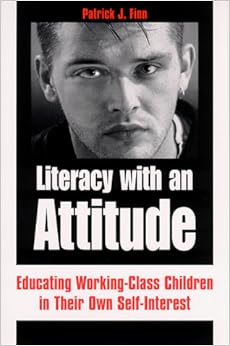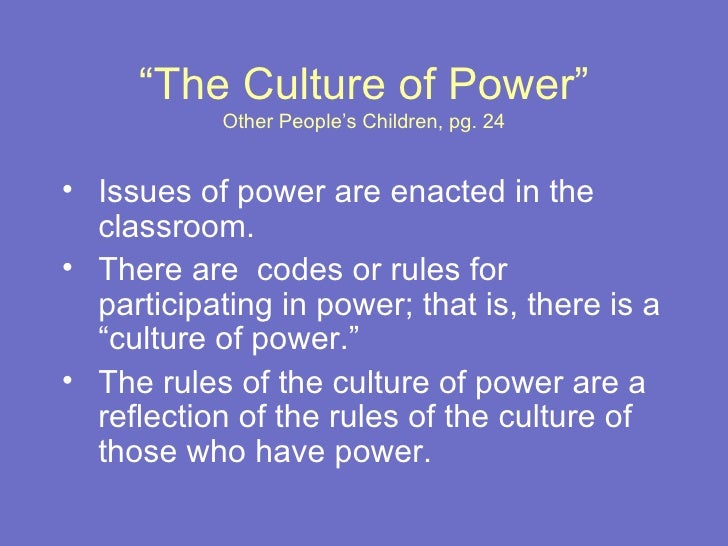Dividing students into different classes depending on their levels of ability and social class is segregation. In "Literacy with an Attitude" by Patrick Finn, he discusses the evolution of literacy. According to Finn, there are two kinds of education, there is "empowering education, which leads to powerful literacy, the kind of literacy that leads to positions of power and authority." The second kind of education is "domesticating education, which leads to functional literacy, literacy that makes a person productive and dependable." He believes the rich get empowering education and powerful literacy while the working class and middle class receive domesticating education and functional literacy. Schools are not providing the same opportunities for each student. Children are placed in their classes determined by class. He notes when working class children get empowering education "you get literacy with an attitude."
When Finn says, "people who have the power to make changes are
comfortable with the way things are" made me think of Delpit's culture
of power. The fifth idea of the culture of power is "those with power are frequently least aware of or least willing to ackowledge its existence." Finn goes on to say that "it takes energy to make changes, and the energy must come from the people who will benefit from the change." I thought about the idea that "those in the power of culture" because Finn and Delpit believe that control in the classroom needs to happen, otherwise children will walk over the teachers. Finn being controlling and telling his students what he expected of them was a way to make sure that the students knew the "rules and codes of power" in his classroom. Finn approach his students not saying "What are you doing?" but instead he would say "Stop that and get to work." No matter if a child is poor or rich, he treats everyone equally. He also explicitly addresses how he wants his work done and makes his assignments easy so the students who have trouble can still get the work done.
Finn looks at the issues of the effect of education and segregation of social class, which is one of the many social issues in education today. Schools should provide the same opportunities and the same skills to each child instead of limiting the education each individual receives. Like he says, "education rather should focus on a powerful literacy--a literacy with an attitude that enables working-class and poor students to better understand."


I really like how you started your post saying,
ReplyDelete"Dividing students into different classes depending on their levels of ability and social class is segregation." I am using you for my extened comments post this week!!
I really liked your post this week. like Alyssa said the start to it was great!
ReplyDeleteI completely agree with how you saw Delpit in this article. The connection with the culture of power made so much more sense after reading your post. Awesome job!
ReplyDeleteReally liked the delpit connection, i never thought of that
ReplyDelete